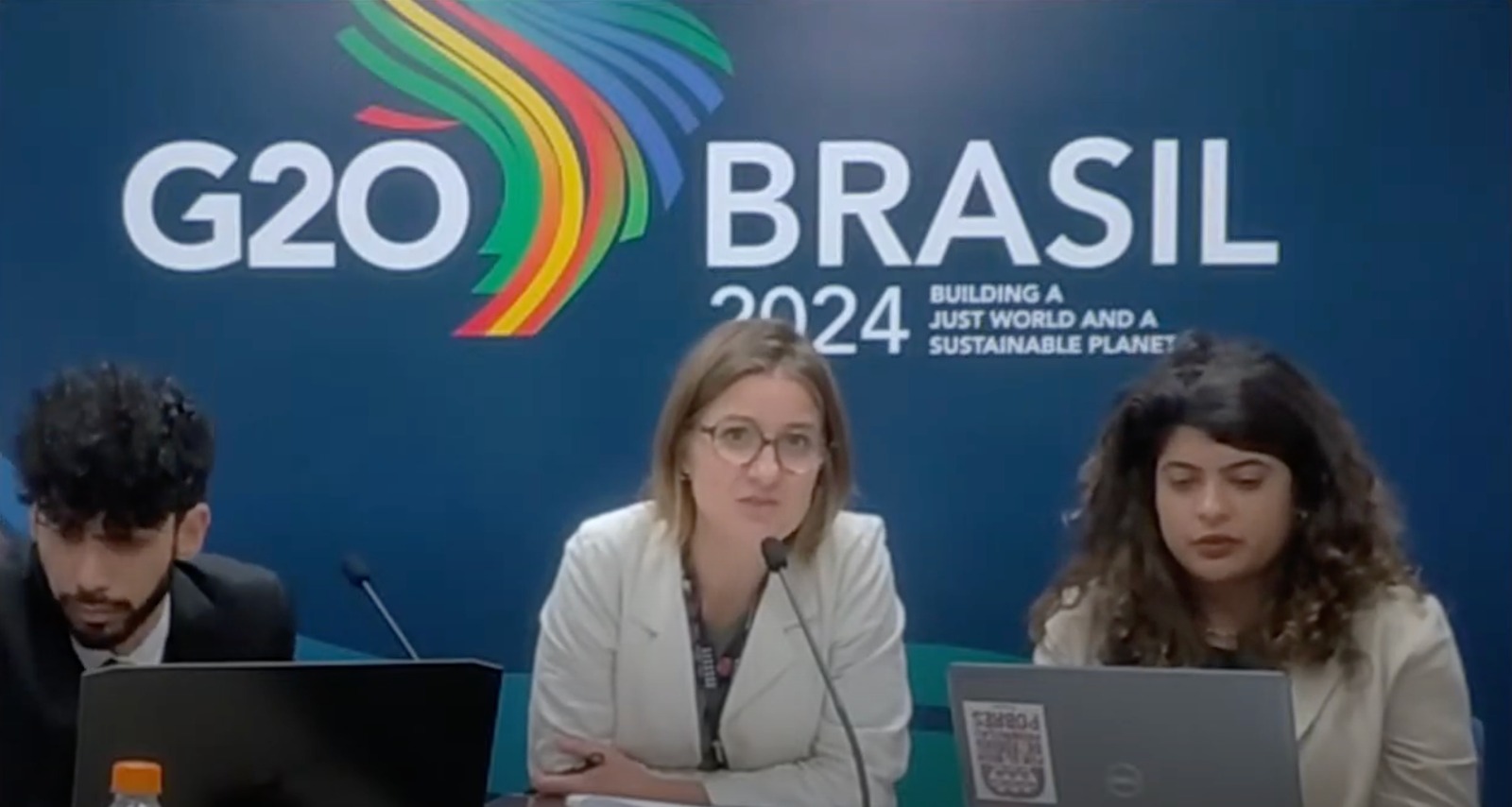Non-governmental organizations, engagement groups and civil society presented their points of view and proposals for combating inequality in its different forms. Part of the G20 Social, the meeting debated the global economy agenda proposed by Brasil's Ministry of Finance.

It would take a standard social or health worker 1,200 years to earn what the manager of a large company earns in a year. If five of the richest people in the world decided to spend a million dollars a day, it would take 476 years to spend all their combined fortunes. It was data like this that subsidized the 2nd meeting of the G20 Socia linked to the Finance Track, held virtually on Thursday (07).
With the theme "Global Economy and Inequalities", the meeting was attended by representatives from various G20 member countries and guests and is available in full at the YouTube channel of the Ministry of Finance. There were 26 representatives of global civil society with the right to speak for up to 3 minutes, after registering on a form before the event. Participants were able to express the concerns and proposals of various entities around the world.
Among the participants was Guilhermina Alaniz, representative of the Aids Healthcare Foundation (AHF) office for Latin America and the Caribbean, who spoke about inequalities in healthcare. "Our proposal is for equality, not simply charity. We want universal vaccines and for countries to make more robust investments in health systems," said Guilhermina. "In this sense, we want a mechanism that converts debt payments into investments aligned with public health strategies. This model is a win-win position that allows rich countries to support countries that are in debt, with the possibility of improving health programs for various diseases'', stated.
Another contribution came from Adrien Fabre, founder of Global Redistribution Advocates. "The GDP of high-income countries is a hundred times greater than the GDP of low- and lower-middle-income countries. So distributing just 1% would have a huge impact. We support all policies that redistribute resources from the Global North to the Global South. A research study shows that 70% of the world's countries are willing to contribute 1% of their income to the fight against climate change. We defend a global plan for this issue, as well as taxing billionaires to finance these initiatives," explained Adrien.
Building dialogues with civil society
The opening panel included speeches by the Undersecretary of International Finance and Economic Cooperation, Antonio Freitas; the Undersecretary of Macroeconomic Monitoring and Trade Policies, Júlia Braga; and Tatiana Berringer, responsible for the Finance Track's relations with Civil Society.
"There are shocking proportions and disparities that confront us every day. The fight against hunger and inequality is being prioritized like never happened before at the G20," declared Freitas.
Building opportunities for dialog with Brazilian and global civil society is one of the objectives of the G20 Social meetings linked to the Finance Track. "We want to increase the forum's social base, since participation also serves as a way of making some key issues public," affirmed Berringer.
In addition to the opening panel, two sessions occurred. The session "Global Economy and Inequalities" featured Laura Carvalho, chief economist at the Open Society Foundation; Amitabh Behar, interim executive director of Oxfam International; and Jurema Werneck, director of Amnesty International in Brasil.
Behar presented the report Inequality Inc. "During the crisis of hunger, climate, cost of living and fuel, what we see is that the super rich have benefited," he warned. "This fight against inequality and the discussion on taxation at the G20 is historic. I hope that this step will be recognized and celebrated," he added.
Werneck called attention to the necessity of an agreement for all countries to participate in the formulation of international taxation policies. "Without such a treaty, tax evasion will continue to have a corrosive effect on societies, increasing poverty and inequality," defended.
The panel "G20 and the Fight Against Hunger, Poverty and Inequalities" featured speeches by Renato Godinho, who coordinates the Global Alliance Against Hunger and Poverty Task Force; Stephen Devereux, a researcher at the Institute of Development Studies; and Adhemar Ribeiro, a member of the Brazilian Association of Economists for Democracy.
Inequality and its relation to the global economy are at the center of the debate proposed by Brasil during its presidency of the G20, seeking ways to mitigate its effects on relations between countries and on their domestic fronts. The next G20 Social meeting linked to the Finance Track will be on "Just Transition and the New Globalization" and is scheduled for the end of this month.






